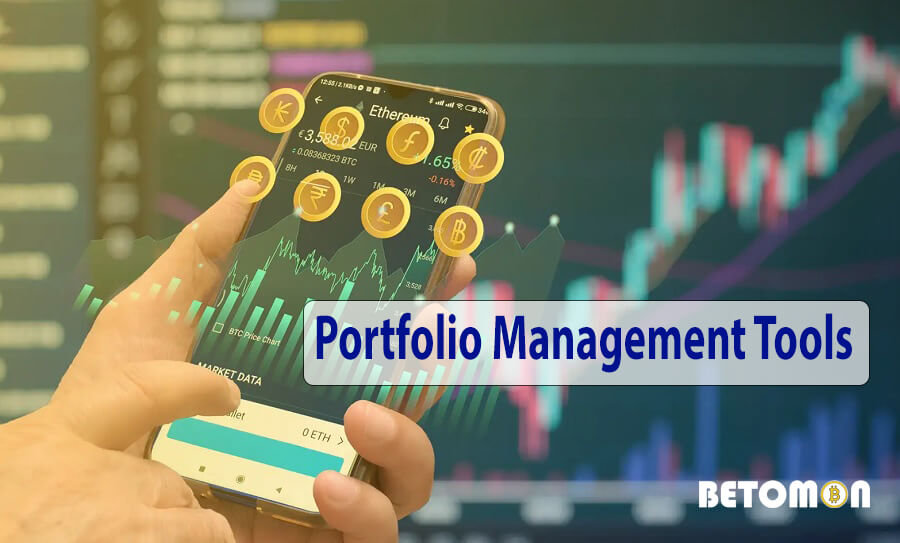Using a portfolio (investment portfolio), users can keep tabs on and manage cryptocurrency holdings, developing profitable plans and turning a profit.
What is a portfolio?
Portfolio or cryptocurrency portfolio, is an assortment of digital assets that are owned by individuals or financial institutions, such as tokens/coins, stablecoins, NFTs, etc. Adding assets to their portfolio is the process by which investors investigate and track possible cryptocurrencies before purchasing and storing that token.

The portfolio’s objective is to guarantee that customers identify hazards promptly, enabling them to develop suitable strategies and maximize profits. To preserve asset value, this involves making investments in a variety of digital assets, high-growth ventures, or well-known cryptocurrencies like Bitcoin and Ethereum.
Investment portfolios can be constructed and maintained using a combination of short-term and long-term tactics. A sound investment plan, risk awareness, and in-depth knowledge of the cryptocurrency market are necessary for managing a crypto portfolio.
How to run a cryptocurrency portfolio efficiently
- Diversification: Investing in multiple token varieties and prudent money allocation might help reduce risks in the event that a project depreciates or even collapses.
- Recognize the trend: It is imperative for traders to consistently observe market patterns and be informed about upcoming developments. Make informed and adaptable investment choices thereafter by considering the most recent data and possible trends.
- Create an investment plan: Everyone involved in the cryptocurrency market should do so from the start to prevent decisions being made based on fleeting feelings that could harm future capital and profitability. a long time. The strategy outlines precise objectives for every phase, performance indicators, profit/loss…

- Risk management: Using techniques like stop-loss, users must assess and manage risks early. This lessens losses and shields invested capital from unanticipated price swings.
- Periodic monitoring and evaluation: Investors can track the performance of their portfolios to make long-term adjustments to their investment strategy and maximize returns. This helps novice traders identify and fix some mistakes in their investing approaches.
- Adhere to safety principles: When trading and storing cryptocurrency, users take the necessary security precautions and abide by safety rules to safeguard assets and personal data. Using a cold wallet, creating strong passwords, and routinely updating security software are a few ways to maintain security.
Popular portfolio management tools
- CoinMarketCap: CoinMarketCap is a widely used price tracker in the modern day. The platform creates portfolio features for both desktop and mobile users that are entirely free of charge. Wallets and exchanges are not linked to the project, thus users must manually add their token holdings in order to use the portfolio tracker. For more precise profit tracking, users can also include the cost of the tokens they have purchased.
- CoinGecko: With its portfolio function, users may keep track of and construct their cryptocurrency holdings. The portal offers in-depth graphs and data regarding the portfolio’s asset performance.

- Blockfolio: This program lets users keep tabs on the value and amount of cryptocurrency assets in their own portfolios. Many features are available on the project, including news updates, price alerts, and comprehensive information about initiatives involving digital currencies.
- CoinStats: This platform assists investors in monitoring and controlling cryptocurrency holdings. The system incorporates profit tracking, investment loss rate, charts, and comprehensive pricing information.
- Delta: Using the same app, users may view both their traditional and cryptocurrency investments. At the moment, the platform is connected to numerous well-known wallets and 20 exchanges.
- Portfolio tracker on exchanges: Certain exchanges include built-in tools for managing portfolios. Users may now easily track and manage virtual currency on a single platform thanks to this.
In summary
In the context of cryptocurrency, a portfolio is a collection of digital assets that are owned and managed to maximize returns and spread risks. Understanding the market and utilizing the right tools and techniques—such as diversification, trend monitoring, risk management, and periodic review—are essential to effective crypto portfolio management.
Betomon is a website that reviews, analyzes and knowledge shares about safe and stable financial investment projects on the theme of crypto forex blockchain… Projects to make money online for free
Visit the website betomon.com or register to receive the latest information here.




